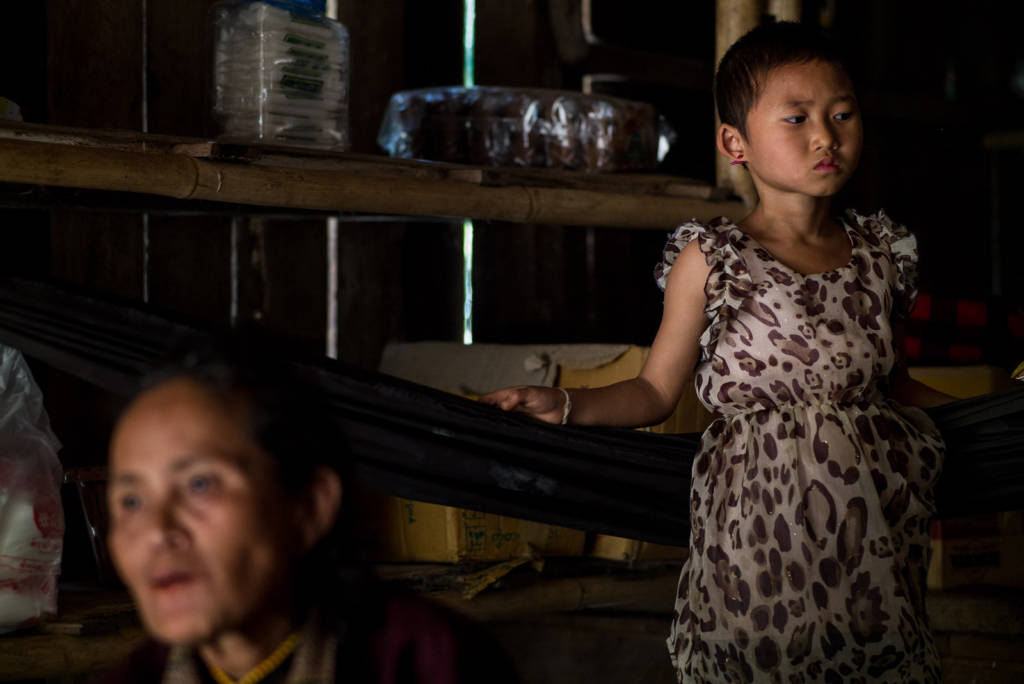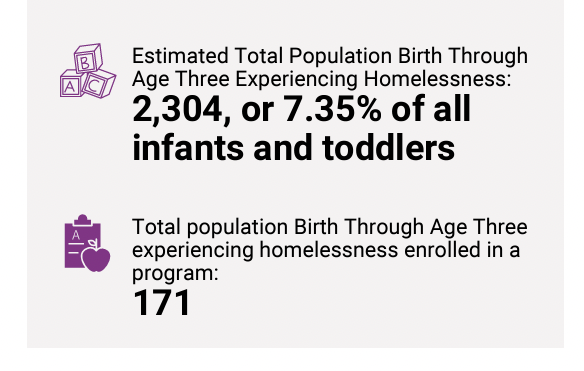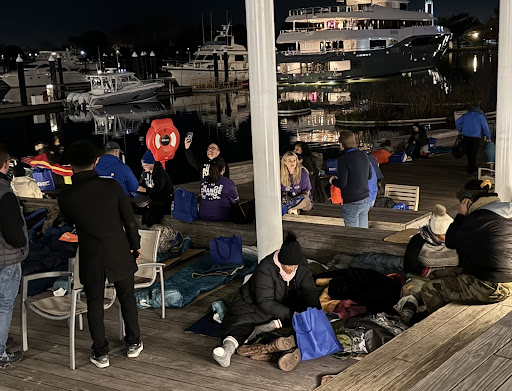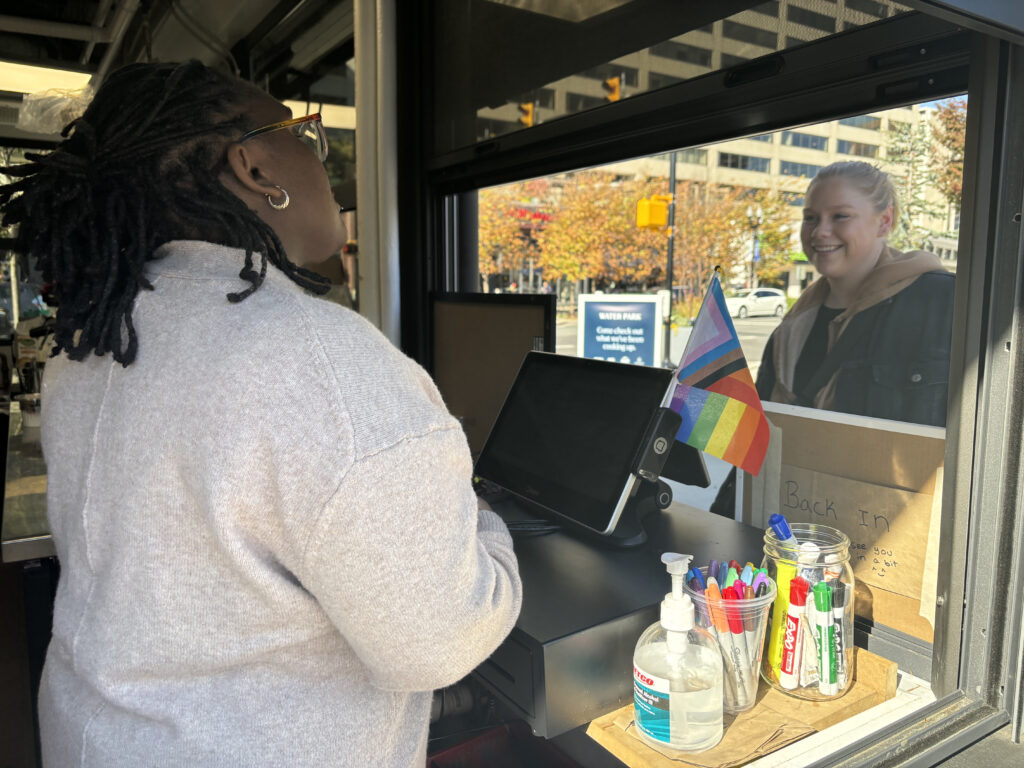Parlez Vous, a volunteer at Street Sense who agreed to speak under a pseudonym, told Street Sense that after becoming homeless in 2010, he decided to “do business” with homeless women who were so desperate to escape homelessness and poverty that they would use their bodies for money, food, and ultimately survival. From 2011 to 2013, Parlez Vous solicited clients for women who were willing to sell their bodies.
“That’s all they have, their bodies. It was ultimately a means to an end for everybody involved,” said the former pimp. “It wasn’t a matter of me finding them, it was a matter of them always being around—some of them at CCNV (the Community for Creative Nonviolence) Shelter.”
A 2013 survey of homeless youth in the District found that of the youth surveyed, 88 percent of them admitted to trading sex for money, shelter, or food. Kristy Kumar, of FAIR (Free Aware Inspired Restored) Girls, explained that many homeless and runaway youth who participate in “survival sex” and trafficking feel the choice has been removed.
Parlez Vous stated that he did business only with women who were at least 20-years-old, many of them from the homeless community. He claims that during his time as a pimp he gave the women a “fair deal,” keeping 50 percent of all money earned. He says he required them to put aside 20 percent of their funds “for purposes of their future, specifically GED acquisition.”
“I kind of felt like the only way I could do this righteously was to have some sort of exit strategy for them,” said Parlez Vous. “These are women that clearly had very few alternatives and very few hopes. They needed guidance.”
FAIR Girls sees the urgency of providing both guidance and an escape from this life for young girls and women ages 11-24. Kumar said that attaining a GED is one of the biggest goals for the young women they come across. FAIR Girls has found that the average age of girls who enter trafficking is 13, and that after entering the life of sex trafficking, many do not continue in school.
Kumar stated that 90 percent of FAIR Girls’ clients refer to their trafficker as “boyfriend.”
“Exploiters are very manipulative and know how to target this desperate population,” she said. “They stand outside shelters or where people are living in tents. They’ve potentially experienced homelessness, exploitation and abuse, too. Traffickers come from all walks of life.”
Boyfriend pimps usually start as a homeless couple desperate to make ends meet, according to aid Parlez Vous, The boyfriend would then suggest to his girlfriend to sell her body for money or food.
“There’s a lot of emotions involved in that,” Parlez Vous said.
Trafficking Online
Parlez Vous made exclusive use of the Internet to gather customers. He believes that in addition to being “fair” with the women, he gave them access to a market they didn’t have before. Some of the women he trafficked were formerly “renegades,” prostitutes that worked without a pimp. Parlez Vous said that often these women performed sexual acts for little to no money in alleyways and that he made the business more lucrative for them.
“I think I taught them enough about the utilization of the Internet for them to be able to operate on their own as renegades,” said Parlez Vous.
Online networks and social media have made it easier for buyers to seek out the services of young women who are victims of trafficking, says Kumar. The majority of the young women FAIR Girls serves have been trafficked through a website similar to Craigslist. FAIR Girls has pushed lawsuits against that site.
Kumar believes that many times, it is the buyers who are forgotten in the “dark triangle” of exploiters, victims and consumers. As of April 22, however, customers will receive a penalty similar to that of the crime of trafficking. The Justice for Victims of Trafficking Act also helps trafficking victims obtain benefits and services. It authorizes and funds both state and federal initiatives to prosecute trafficking while also trying to combat illegal sexual conduct, e-commerce and cybercrime.
Reporting Trafficking Cases
Many minor victims of sex trafficking have been prosecuted as prostitutes, according to a 2015 Congressional Research Service Report on sex trafficking of children. Fear of prosecution may have deterred many victims from reporting their involvement in trafficking.
However, as of July, 2014, Safe Harbor laws in the District specify that minors cannot be prosecuted for engaging in any kind of sex work, including survival sex and sex trafficking. Instead, the law indicates that victims of sex trafficking should be referred to the Child and Family Services Agency in order to receive assistance.
D.C. Alliance of Youth Advocates’ Katie Dunn told Street Sense that because the safe harbor laws are so recent, it is difficult to know if the law has prompted more victims to report their involvement in sex trafficking.
The National Human Trafficking Resource Center’s hotline received 62 phone calls from around the District reporting human trafficking cases in 2014. However, it seems likely that many cases go unreported. There is no official estimate of the number of trafficking victims in the nation, according to the Polaris Project, a non-profit organization dedicated to combatting human trafficking.
Kumar said that because of the unknown numbers of trafficking incidents in the nation, it may be difficult to conceptualize that human trafficking happens in the United States and in the District “[Trafficking] is something that’s relegated to faraway lands, but it happens in Northwest D.C., too, “she said. “Chinatown is a constant Hub. At any given point, there’s probably some type of exploitation that’s about to happen or that already happened in that five mile radius.”
Finding a Future After Trafficking
“I’m out of that life, and my hope is that the women have moved into other lines of work too,” said Parlez Vous.
Parlez Vous currently has his own studio and is trying to make it as a visual artist. He says that his artwork is influenced by his experiences and what he has seen on the streets. He believes that trafficking has a long-lasting effect on women who are sold. “Once you turn your body into merchandise, it’s impossible for you to enjoy love and sex without thinking about business for the rest of your life,” said Parlez Vous. “That is a price too high to pay.”
FAIR Girls provides services and case management to young women who find themselves paying this price. Kumar says that through her work at FAIR, she sees that this population of women is “one of the most resilient.” Kumar has come across many daunting stories from these young women, but she sees the strength and courage in each of her clients and hopes FAIR Girls can help other survivors see these qualities in themselves.
“They’ve built up the ability to fight for their dreams,” says Kumar. “It’s about meeting our clients where they’re at and using strength-based approaches to extract and enhance all the qualities they have that make them beautiful survivors.”








